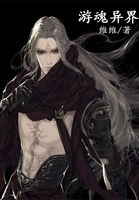Feudalism disdained art, but increased wealth turned peasants into carpenters and masons; carpenters and masons combined and defied their old masters, and these masters left their estates for the higher civilization of cities, and built palaces instead of castles. Palaces had to be adorned, as well as churches; and the painters and handicraftsmen found employment. So one force stimulated another force, neither of which would have appeared if feudal life had remained in statu quo.
The only question to settle is, how far the marked progress of the twelfth and thirteenth centuries may be traced to the natural development of the Germanic races under the influence of religion, or how far this development was hastened by those vast martial expeditions, indirectly indeed, but really. Historians generally give most weight to the latter. If so, then it is clear that the most disastrous wars recorded in history were made the means--blindly, to all appearance, without concert or calculation--of ultimately elevating the European races, and of giving a check to the conquering fanaticism of the enemies with whom they contended with such bitter tears and sullen disappointments.
AUTHORITIES.
Michaud's Histoire des Croisades; Mailly's L'Esprit des Croisades;Choiseul; Daillecourt's De l'influence des Croisades; Sur l'Etat des Peuples en Europe; Heeren's Ueber den Einfluss der Kreuzzuge;Sporschill's Geschichte der Kreuzzuge; Hallam's Middle Ages;Mill's History of the Crusades; James's History of the Crusades;Michelet's History of France (translated); Gibbon's Decline and Fall; Milman's Latin Christianity; Proctor's History of the Crusades; Mosheim.
WILLIAM OF WYKEHAM.
A. D. 1324-1404.
GOTHIC ARCHITECTURE.
A. D. 1100-1400.
Church Architecture is the only addition which the Middle Ages made to Art; but even this fact is remarkable when we consider the barbarism and ignorance of the Teutonic nations in those dark and gloomy times. It is difficult to conceive how it could have arisen, except from the stimulus of religious ideas and sentiments,--like the vast temples of the Egyptians. The artists who built the hoary and attractive cathedrals and abbey churches which we so much admire are unknown men to us, and yet they were great benefactors. It is probable that they were practical and working architects, like those who built the temples of Greece, who quietly sought to accomplish their ends,--not to make pictures, but to make buildings,--as economically as they could consistently with the end proposed, which end they always had in view.
In this Lecture I shall not go back to classic antiquity, nor shall I undertake to enter upon any disquisition on Art itself, but simply present the historical developments of the Church architecture of the Middle Ages. It is a technical and complicated subject, but I shall try to make myself understood. It suggests, however, great ideas and national developments, and ought to be interesting.
The Romans added nothing to the architecture of the Greeks except the arch, and the use of brick and small stones for the materials of their stupendous structures. Now Christianity and the Middle Ages seized the arch and the materials of the Roman architects, and gradually formed from these a new style of architecture. In Roman architecture there was no symbolism, no poetry, nothing to represent consecrated sentiments. It was mundane in its ideas and ends; everything was for utility. The grandest efforts of the Romans were feats of engineering skill, rather than creations inspired by the love of the beautiful. What was beautiful in their edifices was borrowed from the Greeks; what was original was intended to accommodate great multitudes, whether they sought the sports of the amphitheatre or the luxury of the bath. Their temples were small, comparatively, and were Grecian.
The first stage in the development of Church architecture was reached amid the declining glories of Roman civilization, before the fall of the Empire; but the first model of a Christian church was not built until after the imperial persecutions. The early Christians worshipped God in upper chambers, in catacombs, in retired places, where they would not be molested, where they could hide, in safety. Their assemblies were small, and their meetings unimportant. They did nothing to attract attention. The worshippers were mostly simple-minded, unlettered, plebeian people, with now and then a converted philosopher, or centurion, or lady of rank. They met for prayer, exhortation, the reading of the Scriptures, the singing of sacred melodies, and mutual support in trying times. They did not want grand edifices. The plainer the place in which they assembled the better suited it was to their circumstances and necessities. They scarcely needed a rostrum, for the age of sermons had not begun; still less the age of litanies and music and pomps. For such people, in that palmy age of faith and courage, when the seeds of a new religion were planted in danger and watered with tears; when their minds were directed almost entirely to the soul's welfare and future glory; when they loved one another with true Christian disinterestedness; when they stimulated each other's enthusiasm by devotion to a common cause (one Lord, one faith, one baptism); when they were too insignificant to take any social rank, too poor to be of any political account, too ignorant to attract the attention of philosophers,--ANY place where they would be unmolested and retired was enough. In process of time, when their numbers had increased, and when and wherever they were tolerated; when money began to flow into the treasuries; and especially when some gifted leader (educated perhaps in famous schools, yet who was fervent and eloquent) desired a wider field for usefulness,--then church edifices became necessary.















